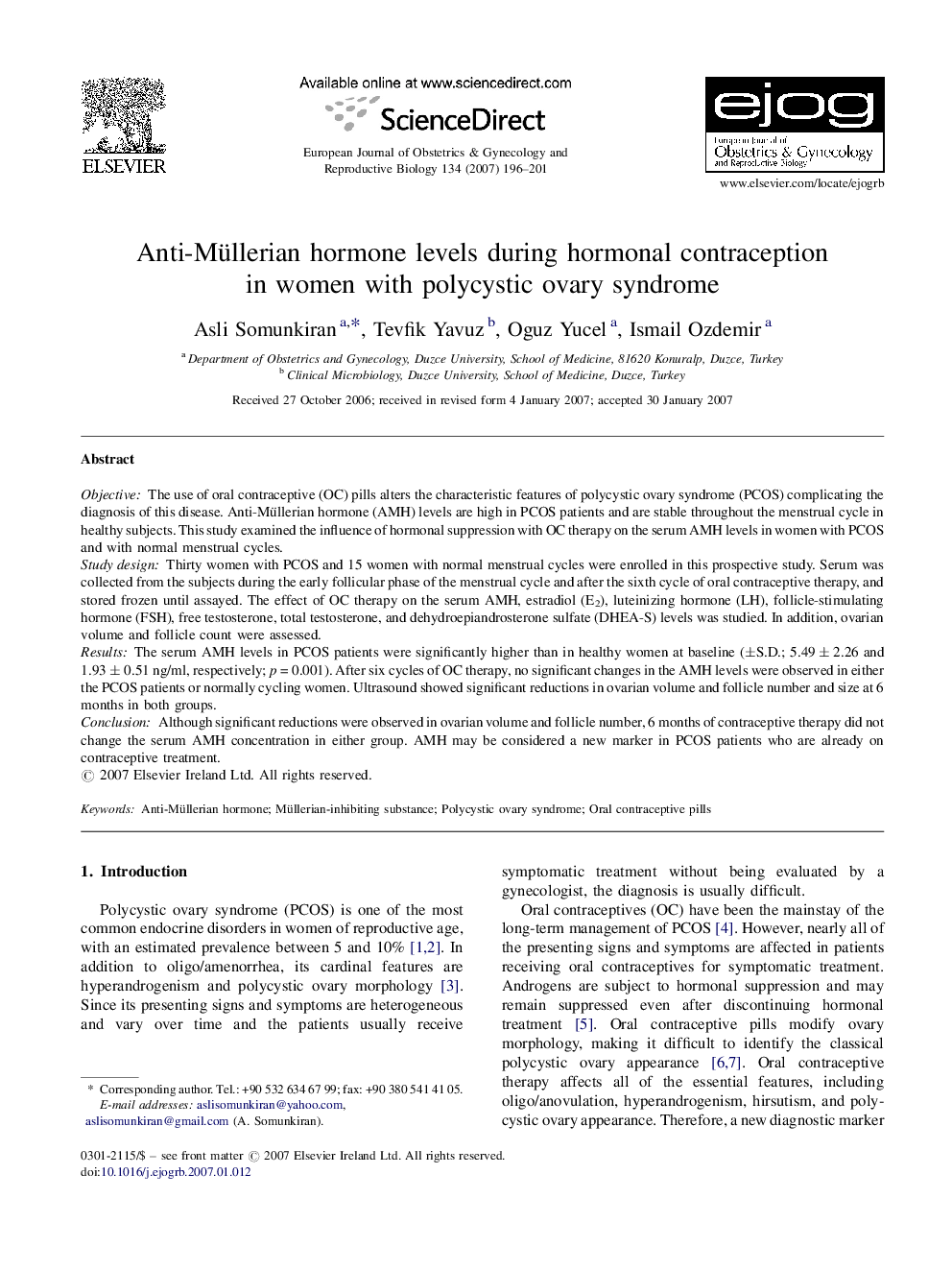| Article ID | Journal | Published Year | Pages | File Type |
|---|---|---|---|---|
| 3921680 | European Journal of Obstetrics & Gynecology and Reproductive Biology | 2007 | 6 Pages |
ObjectiveThe use of oral contraceptive (OC) pills alters the characteristic features of polycystic ovary syndrome (PCOS) complicating the diagnosis of this disease. Anti-Müllerian hormone (AMH) levels are high in PCOS patients and are stable throughout the menstrual cycle in healthy subjects. This study examined the influence of hormonal suppression with OC therapy on the serum AMH levels in women with PCOS and with normal menstrual cycles.Study designThirty women with PCOS and 15 women with normal menstrual cycles were enrolled in this prospective study. Serum was collected from the subjects during the early follicular phase of the menstrual cycle and after the sixth cycle of oral contraceptive therapy, and stored frozen until assayed. The effect of OC therapy on the serum AMH, estradiol (E2), luteinizing hormone (LH), follicle-stimulating hormone (FSH), free testosterone, total testosterone, and dehydroepiandrosterone sulfate (DHEA-S) levels was studied. In addition, ovarian volume and follicle count were assessed.ResultsThe serum AMH levels in PCOS patients were significantly higher than in healthy women at baseline (±S.D.; 5.49 ± 2.26 and 1.93 ± 0.51 ng/ml, respectively; p = 0.001). After six cycles of OC therapy, no significant changes in the AMH levels were observed in either the PCOS patients or normally cycling women. Ultrasound showed significant reductions in ovarian volume and follicle number and size at 6 months in both groups.ConclusionAlthough significant reductions were observed in ovarian volume and follicle number, 6 months of contraceptive therapy did not change the serum AMH concentration in either group. AMH may be considered a new marker in PCOS patients who are already on contraceptive treatment.
